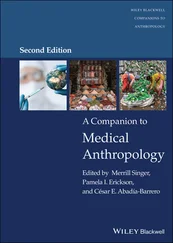Joseph D. Wolfeis Associate Professor of Sociology at University of Alabama at Birmingham. His interests include studying health disparities across periods of social change, multigenerational socioeconomic resources and longevity, and measurement of social hierarchies related to US health inequalities. His most recent research decomposes wealth into its multiple sources, such as housing and financial wealth, and then examines their relationships to mental and physical health among adults entering later midlife. His work has appeared in the Journal of Health and Social Behavior, Social Forces, Research on Aging, Obesity , and several other social science journals.
Chenyu Yeis a PhD candidate in the Department of Sociology at the Chinese University of Hong Kong. She completed her undergraduate studies at Sun Yat-sen University in Guangzhou, China. Her main research interests lie in the areas of medical sociology, sociology of professions, health policy, and family and marriage.
The Wiley Blackwell Companion to Medical Sociology is a follow-up to two earlier volumes of this book and the latest work currently in Wiley Blackwell’s Companion series. The goal is to bring together leading scholars in medical sociology to provide discussion of the most important issues and review the current research in the field. This edition follows this practice by providing chapters on health-related topics of significant interest. The contributors are from Canada, China, Singapore, Sweden, the UK, and the US, who were carefully selected to write chapters on topics in which they were recognized experts.
As will be seen in several chapters, this book was organized and written during the 2019–20 COVID-19 global pandemic. Consequently, many of these chapters take the effects of COVID-19 into account. One chapter (Chapter 21) on newly emerging diseases by Ron Barrett (Macalester College), a recipient of the Wellcome Medal from the Royal Anthropological Institute in the UK, focuses directly on COVID-19 with an authoritative account of the pandemic. Part I of this volume begins with a chapter by Terrence Hill (Texas-San Antonio), myself, Jane McLeod (Indiana University), and Fred Hafferty (Mayo Clinic). It analyzes how medical sociology’s former subfields of sociology in medicine and the sociology of medicine have changed as its subject matter has enlarged and expanded well beyond these two initial categories. Each of these co-authors addresses a particular area of contemporary research. Hill is one of the most prolific scholars in medical sociology, McLeod is Provost Professor and Chair of the Department of Sociology at Indiana University and recipient of both the James R. Greenley and Leonard I. Pearlin awards for distinguished contributions to the Sociology of Mental Health, and Hafferty is a past chair of the Medical Sociology Section of the American Sociological Association who is currently at the College of Medicine at Mayo Clinic in Rochester, Minnesota. He has spent his career as a sociologist working in medical institutions.
Next, I join Graham Scambler (University College London and Surrey University, UK) to provide an overview of sociological theory in medical sociology. Scambler is a Fellow of the Academy of Social Sciences, UK, and editor emeritus of the journal Social Theory & Health . Medical sociology’s evolution from an applied and atheoretical field to a subdiscipline that not only draws from theory in sociology but contributes to it is noted. Current theories in the field are reviewed.
Chapter 3 focuses on research methods, which is a new yet important topic for this volume. This chapter is written by Joseph Wolfe (University of Alabama at Birmingham), Shawn Bauldry (Purdue University), and Cindy Cain (University of Alabama at Birmingham) – each of whom is an experienced and well-regarded methodologist. Next is Chapter 4 on the important relationship between culture and health in a global context. Stella Quah of the Duke-NUS Medical School in Singapore writes this chapter. She is past chair of the International Sociological Association (ISA) Research Council, past president of the ISA Research Committee on Health Sociology, and editor-in-chief of the 2 ndedition of the International Encyclopedia of Public Health . Altogether, four past presidents of ISA’s Research Committee on Health Sociology are authors of chapters in this volume (Cockerham, Gabe, Quah, and Quesnel-Vallée). The remaining introductory chapter is on bioethics by Kristina Orfali (Columbia University) and Raymond De Vries (University of Michigan). Orfali is a Fellow of the Institute for Social and Economic Research & Policy at Columbia and DeVries is Associate Director of the Center for Bioethics and Social Sciences in Medicine at Michigan,
The section (Part II) on theoretical approaches in medical sociology follows. Sarah Nettleton (University of York, UK) provides an update of research on the sociology of the body. Nettleton is a former senior editor of the journal Social Science & Medicine . Adele Clarke of the University of California Medical Center at San Francisco and her colleagues at U.C. San Francisco, Melanie Jeske, and Janet Shim, along with Laura Mamo at San Francisco State University reexamine biomedicalization theory in Chapter 7 on a return visit to the theory decades later. Clarke, the leading proponent of biomedicalization theory has received numerous prizes and awards from professional organizations, including the Medical Sociology Section of the American Sociological Association and the Societies for Medical Anthropology, the Study of Social Sciences, and the Study of Symbolic Interaction. Next (Chapter 8) is an update of health lifestyle theory by the editor with a focus on the significance of social structures in influencing the health-related behavior of individuals. This chapter is followed by a new chapter on life course theory by Andrea Willson and Kim Shuey of the University of Western Ontario in Canada. They have published substantial work in this area. Chapter 10 takes the next journey into theory with a chapter by Lijun Song and Yvonne Chin (Vanderbilt University) on social capital and health. Song is a former student of Nan Lin, a major figure in social capital theory who co-authored a chapter on social capital with her in earlier versions of this book.
Part III addresses health and social inequality, which is a focus of several studies in medical sociology. The section begins with a topic of major importance for medical sociologists, that of health and social class, by two experienced medical sociologists, Jarron Saint Onge (University of Kansas) and Patrick Krueger (University of Colorado-Denver). Next is Chapter 12 on health and gender by Ellen Annandale (University of York, UK). She is a former editor-in-chief of Social Science & Medicine and past vice-president of the European Sociological Association and the International Sociological Association’s Research Committee on Health Sociology. Chapter 13 presents a European view of health, ethnicity, and race by two noted researchers in this area, Hannah Brady (Uppsala University, Sweden) and James Nazroo (University of Manchester, UK). A European perspective is often missing from similar accounts by American medical sociologists, and this chapter fills that void. Turning, however, to the US, Christy Erving and Lacee Satcher (Vanderbilt University) examine African American health, while senior scholars Ronald and Jaqueline Angel (University of Texas-Austin) look at Latinos and equity in access to health care. Both chapters are especially relevant topics today in the US. The concluding chapter in this section is on social policy and health inequality by Amélie Quesnel-Vallée, Jaunathan Bilodeau, and Kaitlin Conway of McGill University in Canada. Quesnel-Vallée holds the Canada Research Chair in Policies and Health Inequalities at McGill, is past president of International Sociological Association’s Research Committee on Health Sociology, and has received awards from the American Sociological Association, the American Public Health Association, and the Population Health Association of America.
Читать дальше












